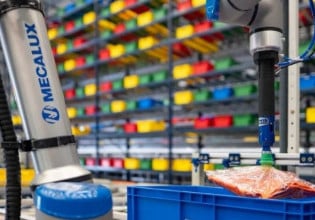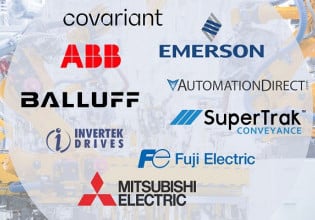Cleaning up Industrial Operations Through Green Manufacturing
Advancing green manufacturing, businesses and academic institutions from across the globe are using artificial intelligence, digital painting and printing technology, and renewable energy.
In this article, we will explore the recent advances behind the changing face of manufacturing and production. More specifically, we will provide an overview of the recent advances in research and industry collaborations supporting the growth of green manufacturing.

Companies are shifting to greener manufacturing processes in light of the climate crisis. Image used courtesy of Canva
What is Green Manufacturing?
Green manufacturing is a process that reduces the negative impact on the environment and human health. The core idea behind green manufacturing is to reduce pollution and use renewable energy sources such as solar, wind, geothermal, or hydroelectric power.
There are many reasons why green manufacturing is important, including:
- Creating a cleaner, healthier environment for people to live in.
- Reducing pollution that harms people’s health and contributes to climate change.
- Increasing energy efficiency, saving money on utility bills and reducing dependence on fossil fuels.
Consumers are more environmentally conscious in light of the climate crisis, and as such, are steering away from buying cheaply produced products and seeking to buy slightly more expensive, high-quality goods with a low carbon footprint. According to trends and predictions, businesses are turning to green manufacturing to help achieve zero-carbon goals, as well as satisfy consumer demand for greener products and services.
Glass Production with Hydrogen Energy
Ardagh Group S.A. and Absolut Vodka are working together to help the globally recognized spirits brand create its iconic bottles on mass using a partly hydrogen energy-powered glass furnace. Ardagh Glass Packaging (Limmared) is a subsidiary of Ardagh Group. Ardagh has signed an agreement with Absolut Vodka to use the hydrogen-fired furnace from next year.

Absolut Vodka to reduce CO2 emissions by using hydrogen energy in their glassmaking process. Image used courtesy of Ardagh Group
From the second half of 2023, Ardagh will launch a pilot in Limmared which focuses on replacing 20 percent of its natural gas with green hydrogen. With the integration of hydrogen, Ardagh plans to manufacture all of Absolut's bottles across its line of products. This change is intended for the production of Absolut’s bottles globally.

Digital painting and digital printing without fluorocarbons can eliminate water use and reduce energy and harmful chemical consumption. Image used courtesy of University of Borås
Digital Printing and Digital Painting
In a project concerned with more sustainable methods of digital printing on textiles at the University of Borås, a research group at the Swedish School of Textiles developed and tested water-repellent pigment inks that do not contain fluorocarbons. Fluorocarbons are chemical compounds that contain fluorine and carbon. Fluorocarbons can be harmful to the environment because they can contribute to ozone depletion and because they can be potent greenhouse gases.
The researchers behind the project have optimized their technology which is now suitable to be used on an industrial scale. The sustainability-minded digital paint and printing technology eliminates water use and reduces energy and harmful chemical consumption.
Decarbonizing Process Manufacturing
The climate technology company, Carbon Re, raised £4.2 million ($4.8 million) in investment for its artificial intelligence (AI)-driven platform for decarbonizing energy-demanding industries. The company's Delta Zero platform provides plant operators and engineers with AI-based and machine learning (ML)-based software tools that can collect and analyze sensor data, generate a digital twin of a plant, and provide recommendations for lowering carbon emissions and fuel costs.

Using AI has the potential to decarbonize energy-demanding industries. Image used courtesy of Carbon Re
Among Carbon Re’s products, Delta Zero Cement works by using AI to create a digital twin of a cement plant based on sensor data collected by the minute through a distributed control system (DCS). A digital model captures specific properties of a cement kiln. Kiln feed rates (tonnes/hour), sensor parameters, and control parameters are analyzed to generate qualified recommendations for operators. Operators can change settings to fan speed (rpm), feed rates, and PC temperature (°C) to optimize plant efficiency, lower carbon emissions, reduce energy consumption, and save costs.
According to Carbon Re, its Delta Zero platform can help energy-demanding industries save as much as 50,000 tonnes of carbon dioxide (CO2) per plant and £2 million in fuel costs.
Manufacturing with a Conscious
As more consumers desire greener products and services, businesses are seeking ways to implement more sustainable and environmentally-conscious practices into their operations. Despite increased efforts to reduce global footprints, businesses still have a long ways to go before greener practices become less talk and more action.






